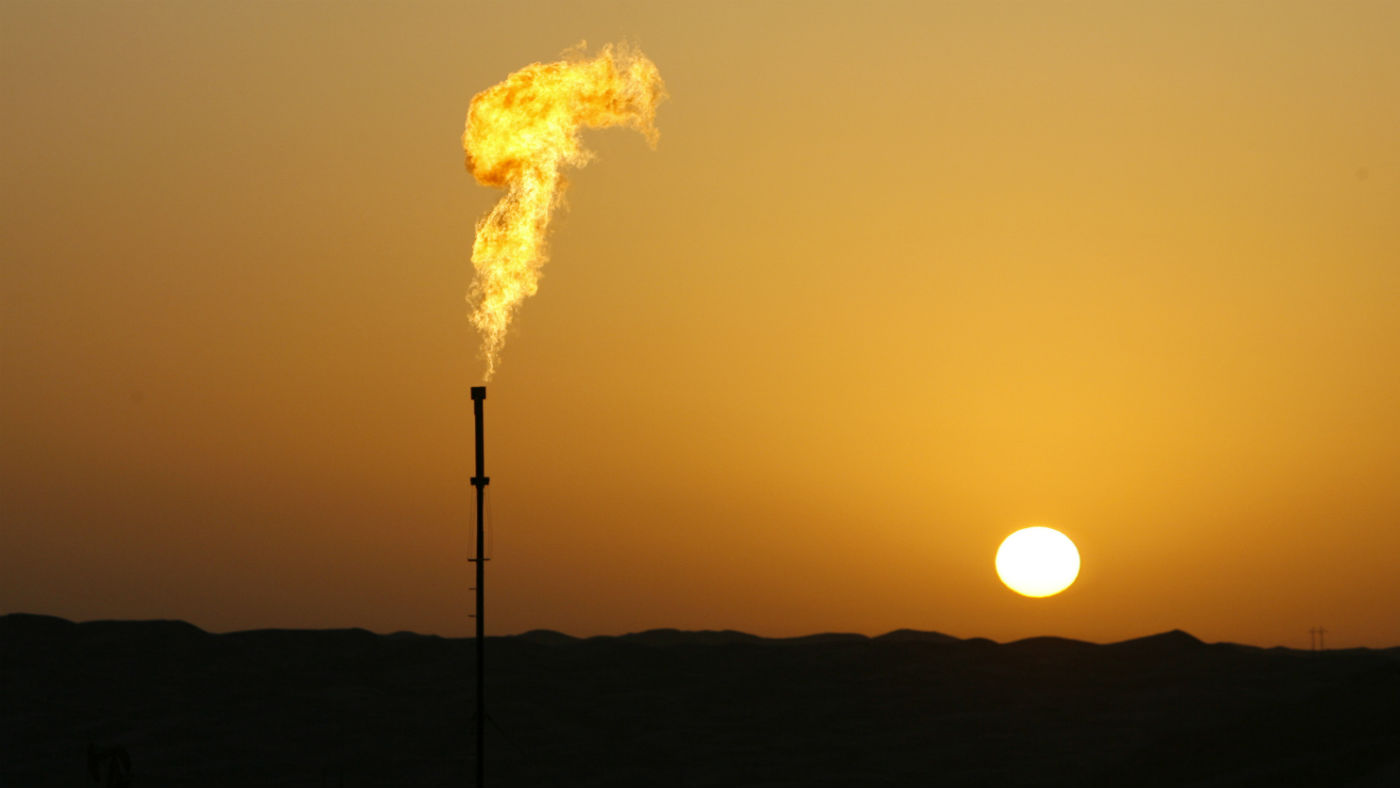Saudi Aramco float values oil giant at $1.7 trillion
World’s most profitable company could become also its valuable

A free daily email with the biggest news stories of the day – and the best features from TheWeek.com
You are now subscribed
Your newsletter sign-up was successful
Saudi Aramco has set a price range for its long-anticipated floatation which would value the oil giant at $1.7 trillion (£1.3 trillion), significantly below that sought by Crown Prince Mohammed bin Salman but still making it the world’s most valuable company.
With a 1.5% stake float of around three billion shares, the initial public offering (IPO) could raise as much as $25.5bn.
The would make it the biggest listing in history, but the lower end of the range would be smaller than Chinese e-commerce giant Alibaba’s float in New York in 2014. It could give the world’s top oil producer and most profitable company an implied valuation of $1.5 trillion to $1.7 trillion, leapfrogging Silicon Valley’s tech giants to become the world’s most valuable listed company.
The Week
Escape your echo chamber. Get the facts behind the news, plus analysis from multiple perspectives.

Sign up for The Week's Free Newsletters
From our morning news briefing to a weekly Good News Newsletter, get the best of The Week delivered directly to your inbox.
From our morning news briefing to a weekly Good News Newsletter, get the best of The Week delivered directly to your inbox.
However, the scale and scope of the listing marks a significant climbdown for the Saudi regime, which is keen to free up some cash as part of its bid to diversify its economy away from oil.
The Daily Telegraph says the prospectus released on Sunday “is an admission of defeat for the Gulf Kingdom and bin Salman, for whom the desired $2bn valuation had been a ‘virility symbol’”.
Aramco had initially been expected to sell some 5% of its shares on two exchanges, with a first listing of 2% on the kingdom's Tadawul bourse, and then another 3% on an overseas exchange.
The company says there are now no current plans for an international sale, with that long-discussed goal now seemingly being put on ice.
A free daily email with the biggest news stories of the day – and the best features from TheWeek.com
With a third of shares to be made available for ordinary Saudis to buy and a massive TV and billboard advertising campaign stoking enthusiasm on the ground “demand is expected to be high”, says BBC business correspondent Katie Prescott.
However, CNN says Aramco “may need to heavily rely on rich local families, sympathetic sovereign wealth funds or major customers such as China signing up for shares”.
Prescott cites a source close to the company as saying “there has been sufficient interest that they're confident they can cover most of this off within the Gulf. But there will be disappointment amongst officials if global demand is not there for the jewel in Saudi Arabia's crown”.
“A fossil fuels company owned by an absolute monarchy in a volatile region are not an easy sell for many Western firms, pursuing the latest trend in investment policy of 'ESG' (Environmental, Social and Governance) criteria,” she says.
“International banks have come under fire from green groups for undermining global efforts to tackle the climate crisis by supporting the Aramco listing,” reports The Guardian, while “investors are also concerned about the company’s close ties to the Saudi state, which has a worrying track record of human rights abuses, and its contribution to the global climate crisis”.
–––––––––––––––––––––––––––––––For a round-up of the most important business stories and tips for the week’s best shares - try The Week magazine. Get your first six issues for £6–––––––––––––––––––––––––––––––
-
 Is Andrew’s arrest the end for the monarchy?
Is Andrew’s arrest the end for the monarchy?Today's Big Question The King has distanced the Royal Family from his disgraced brother but a ‘fit of revolutionary disgust’ could still wipe them out
-
 Quiz of The Week: 14 – 20 February
Quiz of The Week: 14 – 20 FebruaryQuiz Have you been paying attention to The Week’s news?
-
 The Week Unwrapped: Do the Freemasons have too much sway in the police force?
The Week Unwrapped: Do the Freemasons have too much sway in the police force?Podcast Plus, what does the growing popularity of prediction markets mean for the future? And why are UK film and TV workers struggling?
-
 Epstein files topple law CEO, roil UK government
Epstein files topple law CEO, roil UK governmentSpeed Read Peter Mandelson, Britain’s former ambassador to the US, is caught up in the scandal
-
 Iran and US prepare to meet after skirmishes
Iran and US prepare to meet after skirmishesSpeed Read The incident comes amid heightened tensions in the Middle East
-
 Israel retrieves final hostage’s body from Gaza
Israel retrieves final hostage’s body from GazaSpeed Read The 24-year-old police officer was killed during the initial Hamas attack
-
 China’s Xi targets top general in growing purge
China’s Xi targets top general in growing purgeSpeed Read Zhang Youxia is being investigated over ‘grave violations’ of the law
-
 Panama and Canada are negotiating over a crucial copper mine
Panama and Canada are negotiating over a crucial copper mineIn the Spotlight Panama is set to make a final decision on the mine this summer
-
 Why Greenland’s natural resources are nearly impossible to mine
Why Greenland’s natural resources are nearly impossible to mineThe Explainer The country’s natural landscape makes the task extremely difficult
-
 Iran cuts internet as protests escalate
Iran cuts internet as protests escalateSpeed Reada Government buildings across the country have been set on fire
-
 US nabs ‘shadow’ tanker claimed by Russia
US nabs ‘shadow’ tanker claimed by RussiaSpeed Read The ship was one of two vessels seized by the US military